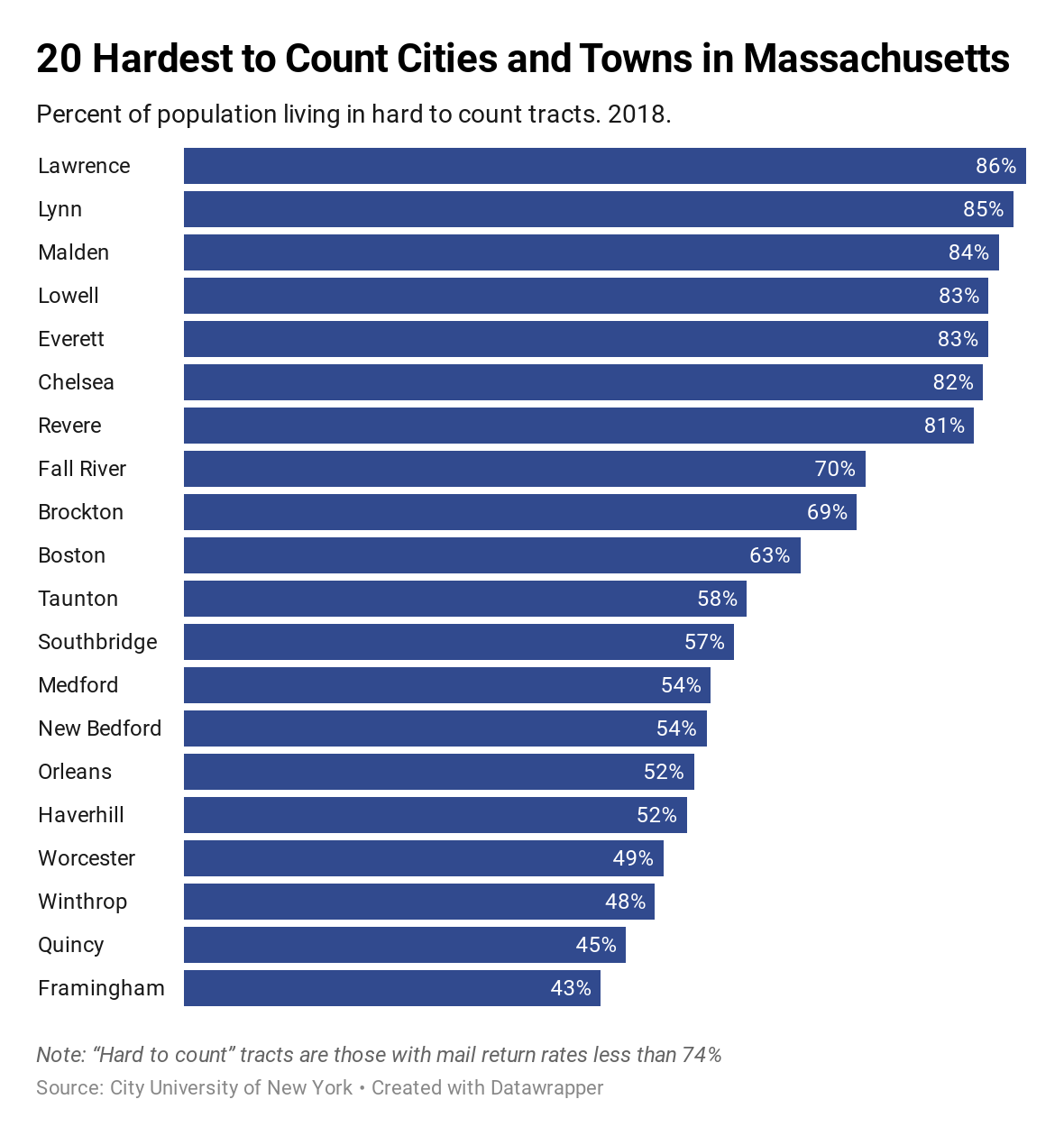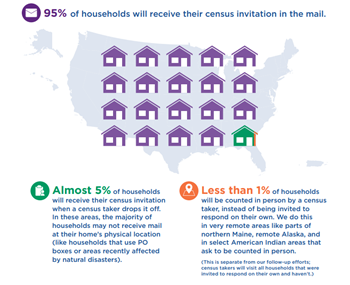Census in the time of coronavirus
The Census Bureau's new 'online-first' approach comes at an important time
March 12, 2020
By Ted McEnroe, Senior Director, Communications and Luc Schuster, Senior Director, Boston Indicators
With politics and coronavirus dominating the news, it’s easy to overlook a critically important document arriving in the mailboxes of most American households over the coming week.
Today, March 12, marks the first day that American households can complete their questionnaires for the 2020 United States Census. (April 1 is the official Census Day launch, but people can actually start completing the form online as of today.) It’s the culmination of years of preparation, by the Census Bureau and by hundreds of nonprofits, across the country and in Massachusetts, to ensure a fair questionnaire and a complete count of every person residing in the United States.
Well over a year ago, Boston Indicators published Census 2020, Explained: How It Works and What’s at Stake for Massachusetts, which highlighted the critical importance of a complete count for federal funding to the state, for the proper drawing of Congressional and local political districts, and for scores of other research initiatives that depend upon an accurate understanding of who lives in our communities and what their needs are.
The report also described major threats to getting a complete count. At the federal level, attempts (albeit unsuccessful) to add a citizenship question could have depressed response rates and federal funding for census operations has been low. Locally, many of our cities are among the nation’s hardest-to-count, driven in part by fear and government distrust, especially among non-U.S. citizens, and our region’s high percentage of renters and college students.
Since that time, groups like the Massachusetts Census Equity Fund, the Massachusetts Nonprofit Network, and the Massachusetts Voter Table have worked with state and local government to raise awareness of both the importance of the census and to reassure people that household responses are completely confidential. Nonprofits and foundations have formed coalitions and formulated plans to get the word out.
And today, it really counts. Here’s what you should know:
You can file your census online right now. Why wait?
Every household in the nation should get a postcard by March 20 with instructions for how to file your census online (mycensus2020.gov). This will include a unique Census ID code, but you can actually file your census right now simply by using your address.
The Census Bureau prefers online responses, but people will also have the option to respond by phone or by mail.
2020 will be the first year where most people are instructed to fill out the census online. In certain areas deemed especially hard-to-count based on past census results, residents will receive a paper questionnaire and an invitation to complete the census by phone or online. Either way, though, everyone will have the option to respond over the phone or by mail, if they request this approach.
People are working to address language and technology issues.
The online approach provides new opportunities for people to respond quickly on their own, but it also raises some pressing challenges. Some groups do not have easy access to the internet, including the elderly and some lower-income households. As new immigration has increasingly made our state more diverse, language access concerns increase as well. The census website is available in dozens of languages, but the initial invitation is only going out in English and Spanish. The Census Bureau is sending the vast majority of Massachusetts households the card (in English) and pushing an online response. However, people living in a number of census tracts in Massachusetts with historically high levels of Spanish speakers will receive a bilingual request to complete the online census.
Eventually, all non-responding households can expect to receive a paper questionnaire before Census takers ultimately go door-to-door to finalize the most complete count possible.
And that’s where the public health piece comes in. At a time of “social distancing” and remote work, quick completion of the census online eliminates the need for any in-person interaction with door-to-door census takers. We should also all look for opportunities to spread the word about why an accurate count is so important for our communities. Indeed, many of the nonprofit groups on the front lines of supplementing the census bureau’s efforts themselves depend on an accurate census to ensure adequate future funding for the range of social service supports that many of them provide year in and year out.


